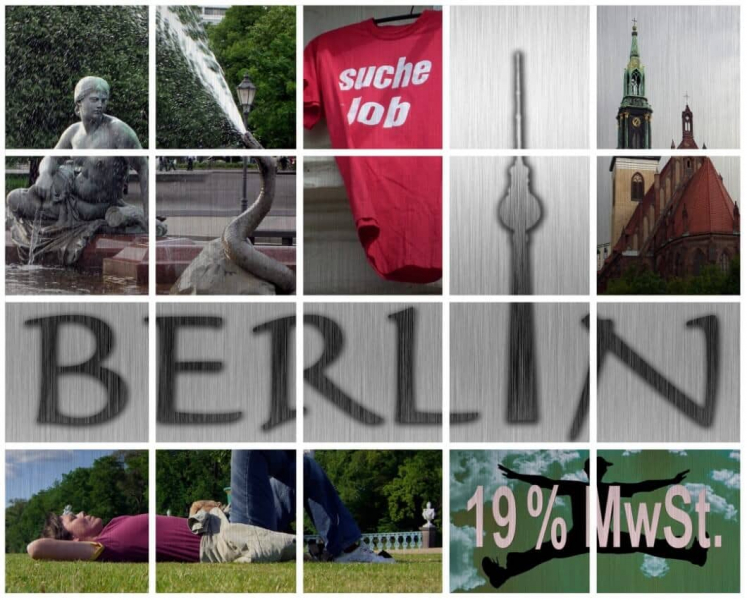Berlin, that famously edgy and vibrant European hub known for its nightlife and historic sites, isn’t feeling quite itself this year. As the city commemorates the 36th anniversary of the Berlin Wall’s fall with numerous events, some recent data paints a less celebratory picture: a tourism slump.
During the first three quarters of 2025, the German capital welcomed slightly under 9.2 million international visitors—a decrease of around 3.5% compared to the same period last year. Overnight stays experienced an even steeper decline, dropping approximately 4% to 22 million.
The figures, published by the city’s Office for Statistics, suggest that Berlin is possibly struggling with the repercussions of its previous success. Last year’s European Football Championship (Euro 2024), held across Germany culminating in a thrilling final at Berlin’s Olympiastadion, attracted unprecedented numbers. Fans from all over Europe came, essentially transforming the city into one giant party. As a Visit Berlin representative put it, reflecting on the surge that now overshadows this year’s quieter streets, “It was a blockbuster year.”
International Visitors Lead the Exodus
The decrease appears to be most pronounced among international visitors. There was roughly a 6% decline in international arrivals, down to about 3.37 million, with a corresponding dip in overnight stays. Domestic tourism, although also affected, demonstrated greater resilience—the slight decrease of 1.5% indicates Germans are still choosing their capital for short breaks and cultural excursions.
Analysts suggest the “hangover effect” might be to blame: following the excitement of the Euros, many returning tourists seemingly chose other destinations this year. Tourism analyst Dr. Lena Müller from the Berlin Institute for Urban Studies explains that “the championship created an exceptional peak…it’s like the day after a fantastic party—everyone’s tired, and the standard has been set extremely high.”
However, Visit Berlin had previously noted other, more persistent issues that were compounding the drop. In a statement released earlier in the summer, the agency identified one of Berlin’s key challenges: insufficient flight connections to markets outside of Europe. While the city benefits from strong intra-continental links, routes to Asia, the Americas, and elsewhere are still somewhat limited. The soaring airport fees – which are the charges levied on airlines – at Berlin Brandenburg Airport, further exacerbate the issue. These airport fees have increased ticket prices and reduced demand. The agency commented that “these problems are not new, but are becoming more prominent.” As of yet, Visit Berlin has not issued any further comments regarding the latest figures, leaving observers to ponder potential recovery plans.
Click here to preview your posts with PRO themes ››
A Silver Lining in “Freedom Week”
Despite this, Berlin is determined to keep its spirit alive. Right now, the city is hosting “Freedom Week,” a special event commemorating the fall of the Berlin Wall on November 9, 1989. The program, which lasts until November 15, features approximately 130 events at 80 locations, effectively transforming the capital into a living, breathing museum dedicated to remembrance and perseverance.
The events on offer range from academic discussions about the end of the Cold War to hands-on workshops focusing on protest art, mirroring Berlin’s diverse character. Music fans can enjoy concerts with songs of reunification, while theater-goers can see plays about lives divided by the Berlin Wall. Guided tours follow the former Wall’s path, first-hand accounts bring the past to life, and digital exhibits provide virtual tours of what was once a divided city. Outdoor film screenings and displays of smuggled artifacts complete the program, ensuring there is something for all: history lovers, families, and curious sightseers.
The organizers are hoping “Freedom Week” might just give tourism a boost. Initial signs are encouraging: hotel bookings in central areas like Mitte and Prenzlauer Berg are up by around 15% in the run-up to the event, according to initial information from local booking sites. Event coordinator Jonas states that “Events such as this remind the world why Berlin remains relevant.” Klein observes that the real draw are “stories that pull people back,” not just mere figures.

Charting a Path Forward
As 2025 nears its end, those guiding Berlin’s tourism sector are grappling with a perennial challenge: how to capitalize on the city’s compelling cultural appeal while smoothing out operational kinks. Discussions are progressing concerning more long-distance flights, maybe with Lufthansa and newer airlines from the developing world. Simultaneously, projects such as discounted green travel bundles seek to attract budget-minded Europeans concerned about rising prices after the pandemic.
Currently, the data offer a warning: one major attraction can’t indefinitely support a city’s attraction. Nevertheless, with its rich history, innovation, and constant renewal, Berlin has a talent for overcoming challenges. As “Freedom Week” progresses, the key takeaway from the Wall’s history might not be division itself, but rather the strength of unity – with tourists included – in connecting to what the future holds.


